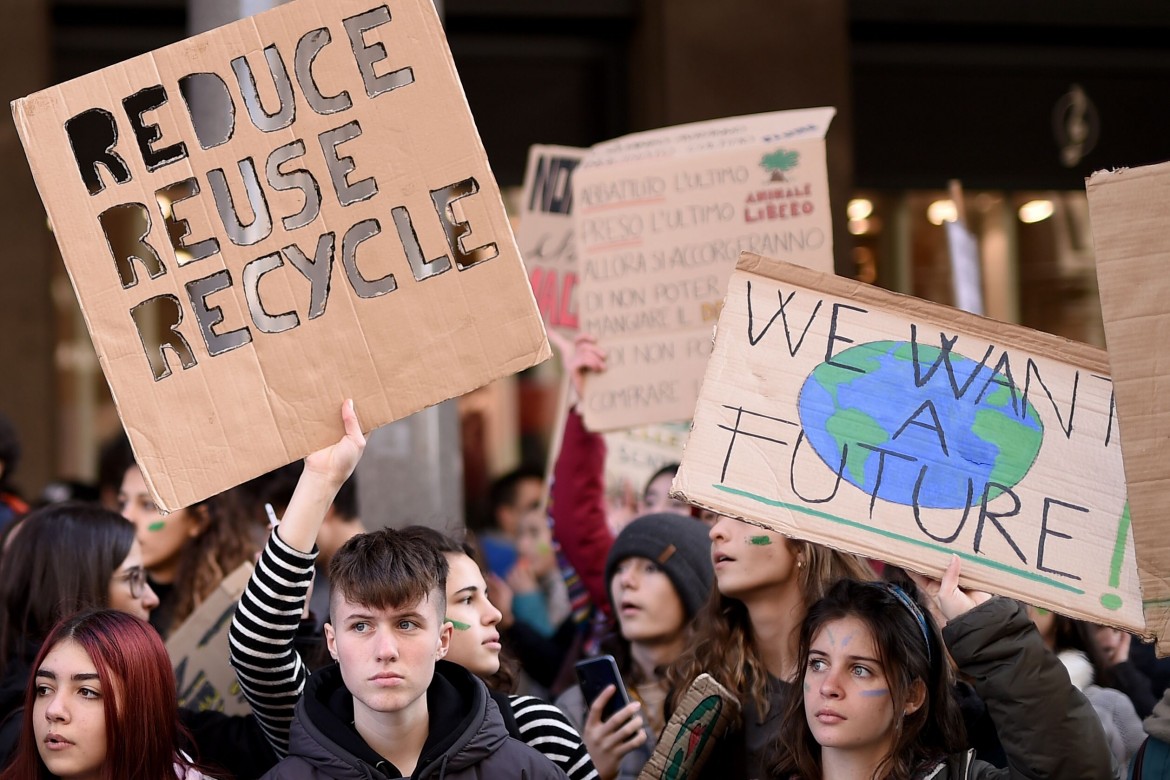Interview
Jean-Pascal van Ypersele: ‘Change is possible, but it requires a revolution’
We spoke with the climatologist and Nobel Peace laureate Jean-Pascal van Ypersele. ‘I have often gone down personally to march in the streets of Brussels alongside the kids’ from Fridays for Future.

Jean-Pascal van Ypersele is a professor at the Earth and Life Institute at the Catholic University of Leuwen, Belgium, and in 2008 he was a vice-president of the Intergovernmental Panel on Climate Change (IPCC), a United Nations body committed to monitoring changes tied to global warming. Awarded the Nobel Peace Prize in 2007 for his commitment to combating climate change, he is today one of the most fervent supporters of Fridays for Future, the student movement that is calling on the political class to act soon against global warming.
“Today we have already recorded a 1 degree increase in temperatures compared to the pre-industrial period, and to reduce the risks from global warming, we must reach zero net emissions in the next 30 years,” van Ypersele told us ahead of the COP25 climate summit in Madrid.

What are the consequences of global warming that are already present in our daily lives?
Extreme natural events, for which we are seeing an increase in frequency and intensity, are clearly linked to global warming. The heat waves of recent years are clearly more intense than before. If we take just the year 2003, we can estimate the number of deaths due to the excessive heat as 70,000 in Europe alone. Rainfall has also become more intense and more violent, a consequence of the greater evaporation of the oceans and a greater concentration of water vapor in the atmosphere. This comes with a higher likelihood of causing flooding and landslides. It is also important to highlight the phenomenon of the progressive desertification of the Mediterranean basin. There are also questions about whether the fires that we have been seeing in the Iberian Peninsula in recent years might also be a sign of global warming.
Are the extreme weather phenomena that we have seen in Italy in recent days also due to global warming?
As I said, the increase in the frequency and intensity of rainfall is clearly linked to global warming. The case of Venice is a little different, made worse by the change in the sea level, which has risen by an average of 20 cm over the last century. This means that whenever a storm is associated with high tides, in a general context of rising sea levels, it is clear that the phenomenon of “acqua alta” in Venice is destined to surpass previous records again and again in the years to come.
Why is it so important to remain below the infamous 1.5°C threshold?
Considering the case of a temperature increase of 1.5°C, it has been calculated that 14% of the world’s population would be exposed to extreme phenomena linked to global warming at least once every five years. If the amount of warming is increased by half a degree more, reaching the threshold of 2°C, the percentage of people exposed to such phenomena increases to 37%. When looking at the extinction of species, vertebrates in particular, if warming is limited to 1.5°C, 4% of species would already lose at least half of their habitat. If we add half a degree more, the number of species affected would increase to 8%. Between 70% and 90% of coral reefs would be severely affected with a warming of 1.5°C, and this would extend to all of them with an average temperature increase of 2°C.
How do you explain the denialist approach taken by some heads of state when the science says otherwise?
I’m thinking about the movie An Inconvenient Truth. The information we have today about global warming is very solid and enjoys widespread consensus in the scientific world, at least among those who have the qualifications to express a judgment. This consensus is disturbing to many, because if we want to take action on climate change, we need to call into question our use of fossil fuels. Change is possible, but this would require a revolution in many fields, starting with the way we produce and consume energy. If we continue with business as usual, we’re heading straight into a wall.
The Fridays for Future movement has given impetus and visibility to the appeal made by scientists, and science has given legitimacy to the young people’s protests in turn.
That’s exactly right. I have often gone down personally to march in the streets of Brussels alongside the kids, with a sign saying, “The young and the IPCC: stronger together.” Of course, it’s more difficult to remain indifferent when a young person, anxious about their own future, is questioning the political world about an IPCC report, which are too often shelved away and forgotten.
What do you expect from the COP25 in Madrid?
I’m expecting three things. The first is that they should finalize all the regulations that make up the Paris Agreement (a work in progress since COP21), which are still a long way from being completed. I am thinking in particular of the rules regarding the use of coal as a fossil fuel, on which there is still no agreement. The second is that they should decide to set the maximum global warming threshold at 1.5°C. Today, the Paris Agreement still says that we must limit the increase in global temperatures to below 2°C. Third, an international climate transition fund must be set up, with funding of at least $100 billion per year, a project currently stuck at only $10 billion.
Originally published at https://ilmanifesto.it/jean-pascal-van-ypersele-cambiare-e-possibile-ma-ci-vuole-una-rivoluzione/ on 2019-12-03
